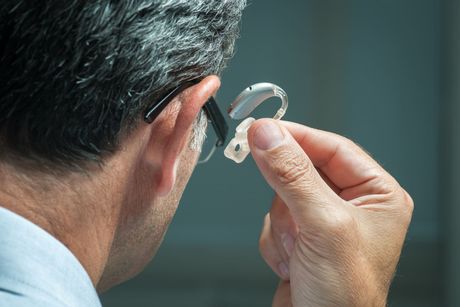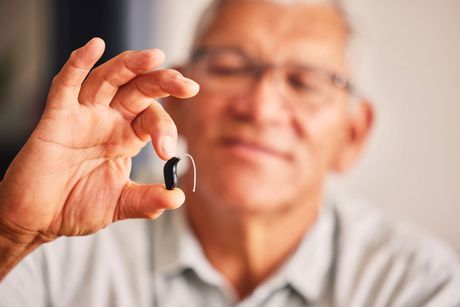Hearing Aid Specialists for the People of Springfield & Peoria, IL
We get it. Sometimes life goes speeding by so fast it seems like there’s hardly time to breathe. Little things get shoved to the side, until one day they become too big to ignore. That’s the way it is with hearing loss. Conversations get harder, particularly in crowded places. Your TV gets turned up louder and louder. And the sweet sounds of the natural world around you seem faded and more distant.
We can help. At Heart of Illinois Hearing, we specialize in finding the perfect hearing solutions for people just like you. Our tailored approach combines advanced hearing tests to determine whether a hearing aid might help you, sophisticated technology, and most importantly, caring and experienced professionals dedicated to helping you get back what you have lost.
Forget everything you think you know about hearing loss and hearing technology. Thanks to the incredible advances we’ve made during recent years, hearing aids and assistive devices are less noticeable – and more powerful – than ever before.
It’s your life; don’t wait another day to reclaim all of the beautiful sounds that surround you. They’re still there, just waiting for you to take action. Call or text Heart of Illinois Hearing for an appointment today!
See What Peoria and Springfield Think About Heart of Illinois Hearing
Check out what our clients think of our services. Are you a client? We want to hear from you.
Check Your Hearing Online
In just a few minutes, we can give you an idea of how well you are hearing.
5 Reasons To Get Your Hearing Checked

Prevent Dementia
Hearing loss can lead to a decline in cognitive function, depression, and a higher risk of falling.

Keep Your Health Care Costs Down
Paying no attention to hearing loss for only two years can increase your healthcare expenses by as much as 26%.

Maintain Your Overall Health
Hearing loss typically happens over a period of time, so it can be tough to notice the symptoms. Regular checkups are the best diagnostic method. Additionally, hearing loss is a warning sign when it comes to things such as autoimmune responses, diabetes, and circulation issues.

Eliminate any Medications That Could Be a Problem
More than 200 known medications can affect your hearing, including certain antibiotics and OTC medications. Make sure they aren’t causing a problem for you.

Keep Up the Bonds With Loved Ones
Asking people to repeat themselves can cause frustration for both parties involved. Hearing tests can help you find the right solution.
Take the First Step Toward Better Hearing
Call us today to schedule a free hearing exam to see if hearing aids might help you!
Why Choose Heart of Illinois Hearing?
Our goal is to help those suffering from hearing loss to restore it. We aren’t satisfied until you are.
We can help you with the following:
- Discover what’s causing your hearing loss
- Determine the best hearing aids for you according to your situation and budget
- Go over the advantages and disadvantages of types and brands of hearing aids
- Customize your hearing aids for the best performance possible
- Make any small adjustments when necessary



